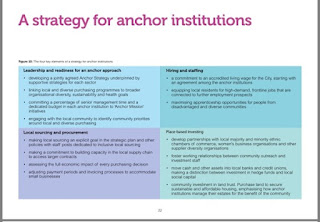The (false) trade off between the economy and health

A few months ago I had the privilege of delivering the @ScHARRSheffield 2021 Pemberton lecture During the q&a at the end someone asked me to explain my statement that the trade off between saving health and protecting the economy was a false choice I gave a pretty poor answer Here I'll try set it out more clearly In "normal times" (remember them) I've been here quite a few times, most recently here The onset of illness in working age is very common Multi morbidity (more than one thing wrong with you) more common in poorer populations & earlier onset, see Barnett 2012 also more common numerically speaking in those of working age than those beyond retirement age. for England (chart below from the Health Foundation) In Sheffield broadly the same holds true Those with lowest income spend more of their lives, often within working age, in less than good health. When considering Healthy Life Expectancy, in Sheffield, the healthiest are